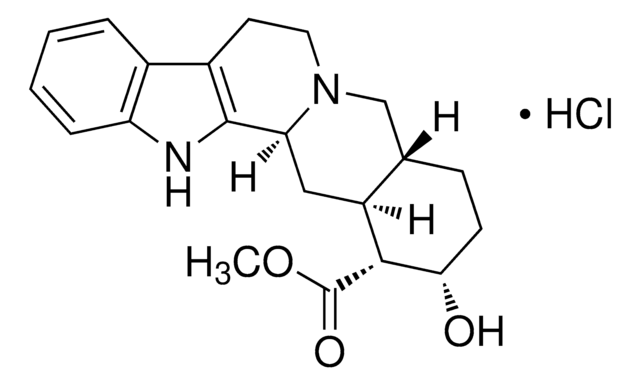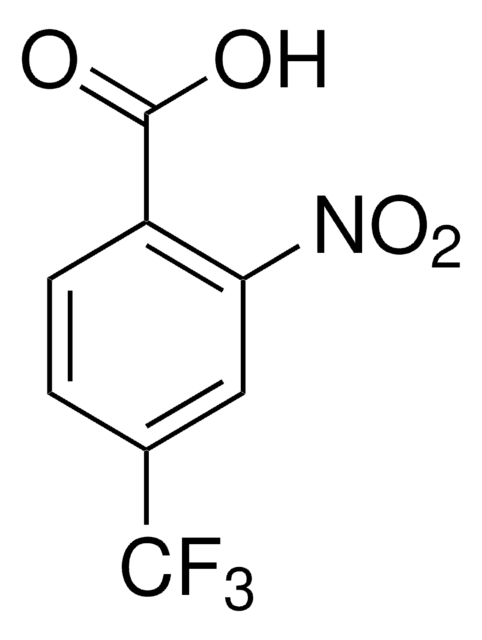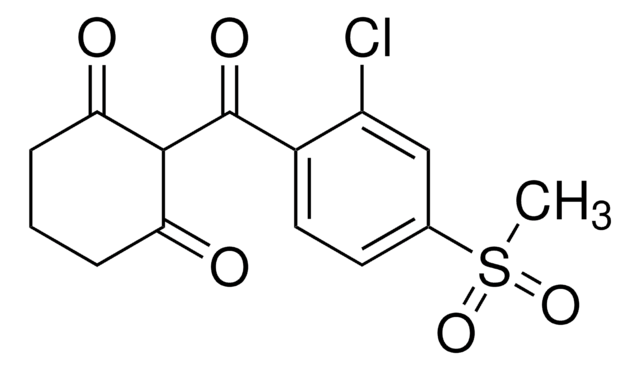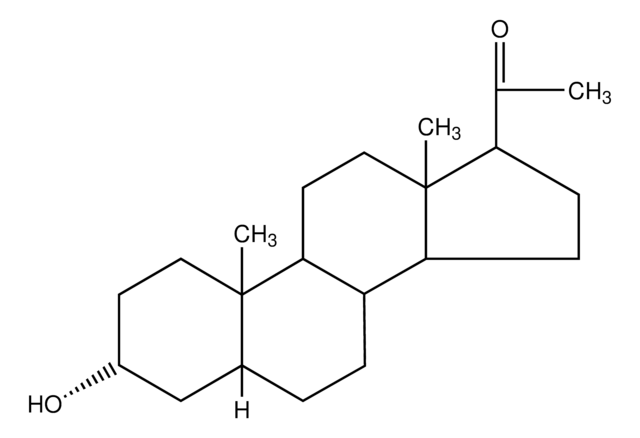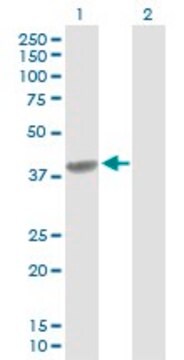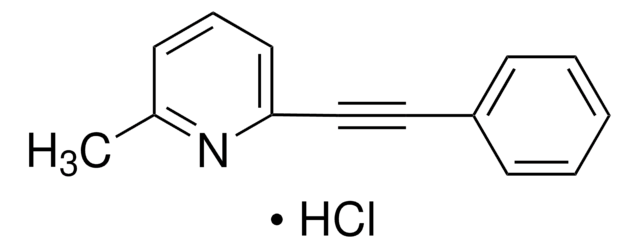SML0269
Nitisinone
≥95% (HPLC)
Sinónimos:
2-(2-Nitro-4-trifluoromethylbenzoyl)-1,3-cyclohexanedione, 2-[2-Nitro-4-(trifluoromethyl)benzoyl]cyclohexane-1,3-dione, NTBC, Nitisone, SC 0735
About This Item
Productos recomendados
Quality Level
assay
≥95% (HPLC)
form
powder
color
white to brown
solubility
DMSO: ≥5 mg/mL
storage temp.
−20°C
SMILES string
[O-][N+](=O)c1cc(ccc1C(=O)C2C(=O)CCCC2=O)C(F)(F)F
InChI
1S/C14H10F3NO5/c15-14(16,17)7-4-5-8(9(6-7)18(22)23)13(21)12-10(19)2-1-3-11(12)20/h4-6,12H,1-3H2
InChI key
OUBCNLGXQFSTLU-UHFFFAOYSA-N
Gene Information
human ... HPD(3242)
¿Está buscando productos similares? Visita Guía de comparación de productos
Application
- to induce liver injury
- to treat Ixodes scapularis tick cells to inhibit the activity of hydroxyphenylpyruvate dioxygenase
- in supplemented water to block the accumulation of toxic metabolites in human hepatocyte engrafted mice
- to study its effect on bacterial pyomelanin production
Biochem/physiol Actions
Storage Class
11 - Combustible Solids
wgk_germany
WGK 3
flash_point_f
Not applicable
flash_point_c
Not applicable
Certificados de análisis (COA)
Busque Certificados de análisis (COA) introduciendo el número de lote del producto. Los números de lote se encuentran en la etiqueta del producto después de las palabras «Lot» o «Batch»
¿Ya tiene este producto?
Encuentre la documentación para los productos que ha comprado recientemente en la Biblioteca de documentos.
Nuestro equipo de científicos tiene experiencia en todas las áreas de investigación: Ciencias de la vida, Ciencia de los materiales, Síntesis química, Cromatografía, Analítica y muchas otras.
Póngase en contacto con el Servicio técnico
